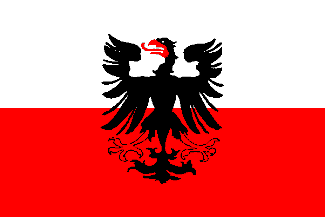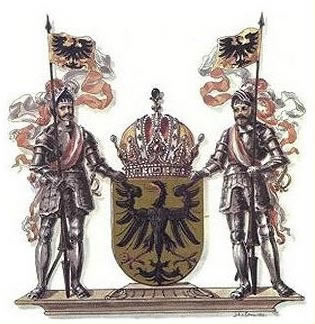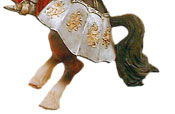| Dockings and Events |
|
| Museumship Vlotburg Castle in Deventer starts on 29.07. till 10.08.2007 |
 |
Deventer (city)
Deventer was probably founded by the English missionary Lebuinus around 768, who built a wooden church on the right bank of River IJssel. This was not the first human settlement at the location: from the Bronze Age to about 400 A.D. there was at Colmschate, 4 km east of the city centre, a settlement; remains of it were excavated between 1981 and 2006. The story, telling that in the Roman age there probably was a stronghold called Daventria in place, proved to be a fantasy. The favorable location has probably seen habitation ever since.
City Rights and Medieval Times
Deventer, with the Lebuinus ChurchThe village of Deventer, already being important because of a trading road crossing the river IJssel, was looted and burnt down by the Vikings in 882. It was immediately rebuilt and fortified with an earthen wall (in the street Stenen Wal remains of this have been excavated and restored). Deventer received city rights in 956. From this date fortifications were built or replaced by stone walls around the city for defense. Between 1000 and 1500, Deventer grew to be a flourishing trade city because of its harbour on the river IJssel, which was reachable for large ships. The city was a member of the Hanseatic League In the 15th century, the city had a common mint, where coins for the 3 IJssel cities Deventer, Zwolle and Kampen were made.
Deventer is the place of birth of Geert Groote and home to his Brethren of the Common Life, a school of religious thought that was of great influence on Thomas a Kempis and Erasmus in later times. It had book printing shops as early as from 1477 on, and an internationally famous Latin School, where the famous scholar Desiderius Erasmus went, when he was a boy.

  |
|
 |
|
| |
|
|
|

